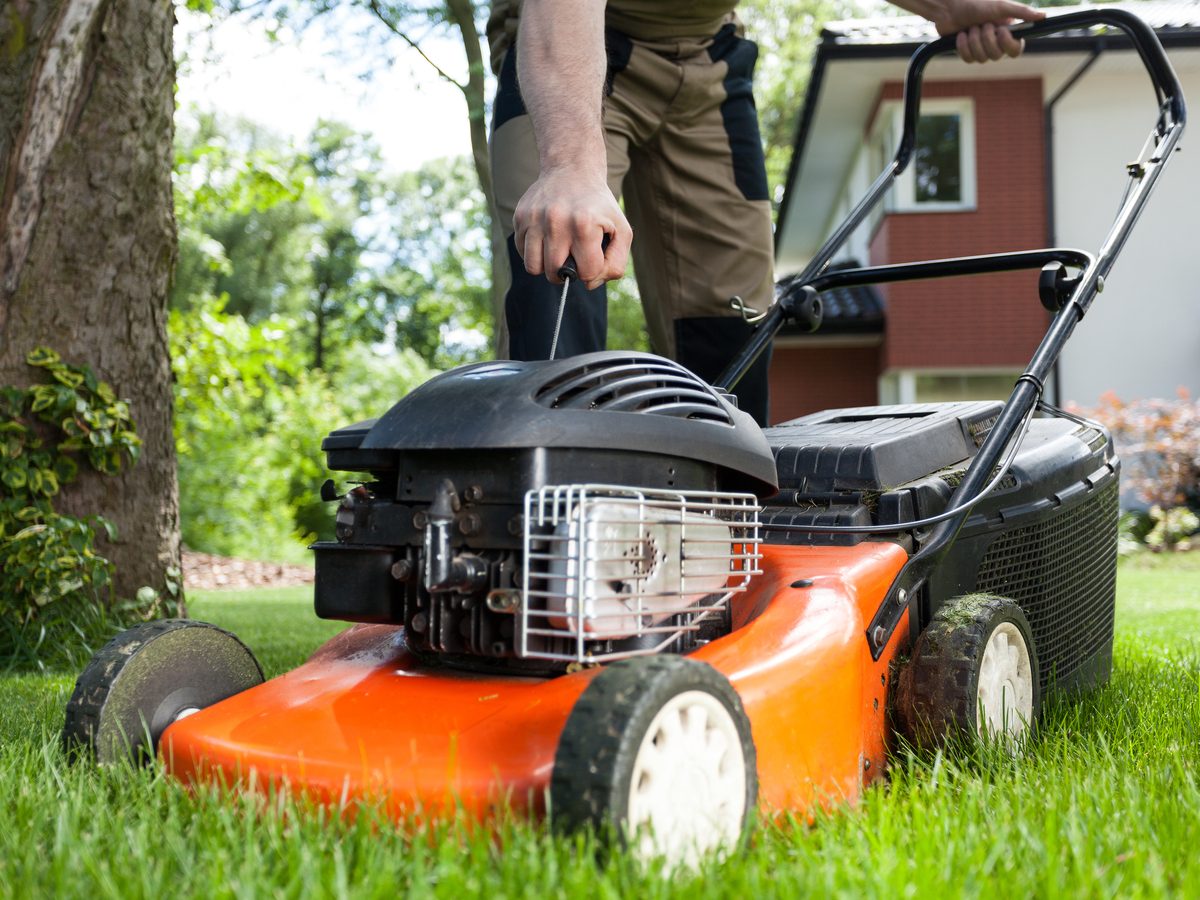
Yard and power tools
While they may be called “outdoor tools,” lawn mowers, garden tools and the like should never be left in your yard. “Exposure to moisture in the air or rain could render some outdoor power equipment inoperable or lead them to rust,” says Eddie Anderson, a technical training supervisor at Stihl. “In addition, sharp garden tools left in the grass could pose a risk to kids, pets or anyone walking through the yard.”
He adds that even plastic tools degrade when exposed to the sun for too long. Pricey power tools are also a frequent target of thieves. For these reasons, always store your outdoor tools in a secure, dust- and frost-free location as soon as you’re finished using them.
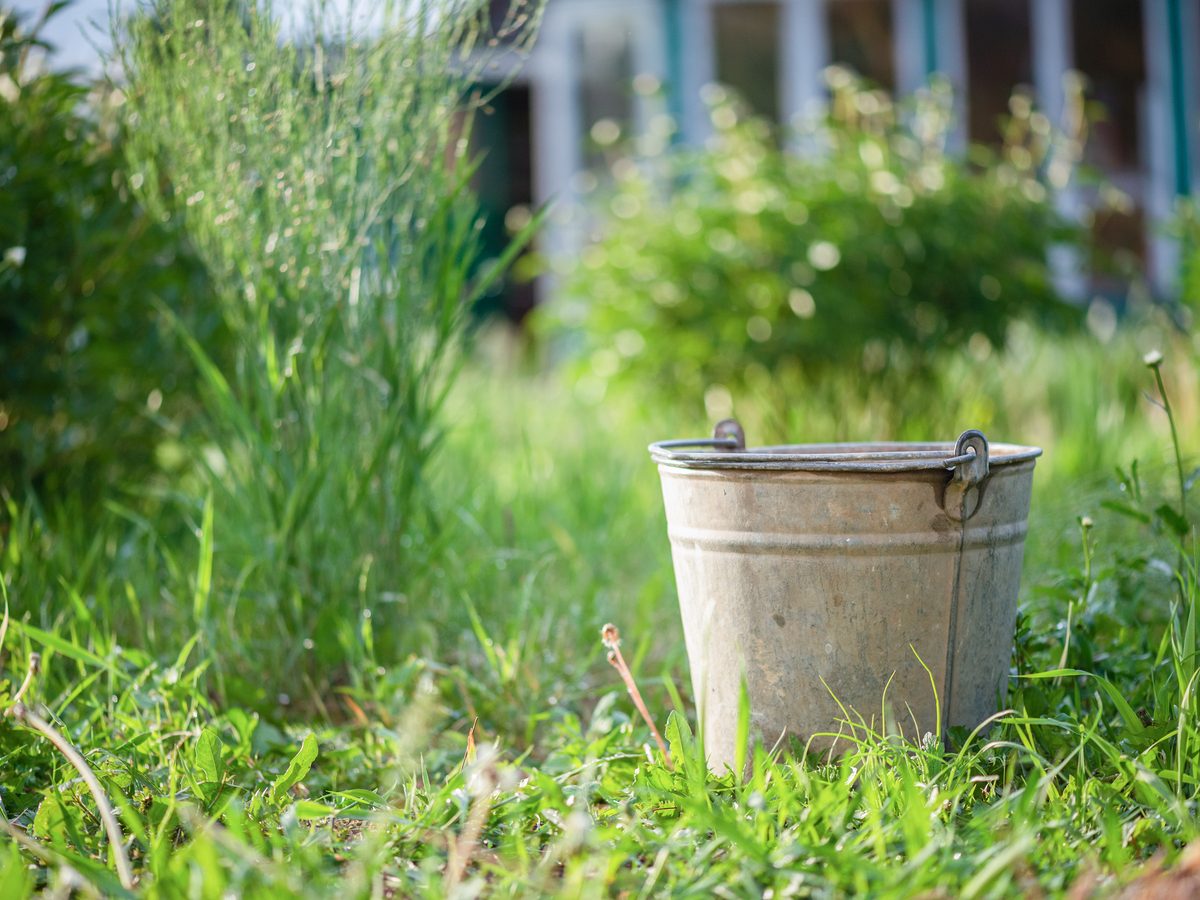
Anything that can hold standing water
Standing water is prime breeding ground for mosquitoes—things like buckets, kiddie pools and unfilled planting pots. Seth Hillenmeyer, a multi-franchise owner of Weed Man and Mosquito Authority, says just one inch of water can breed up to 1,000 mosquitoes. Avoid leaving these items outdoors—and if you do, dispose of the water immediately before stashing them indoors.
These are the best mosquito repellent plants.
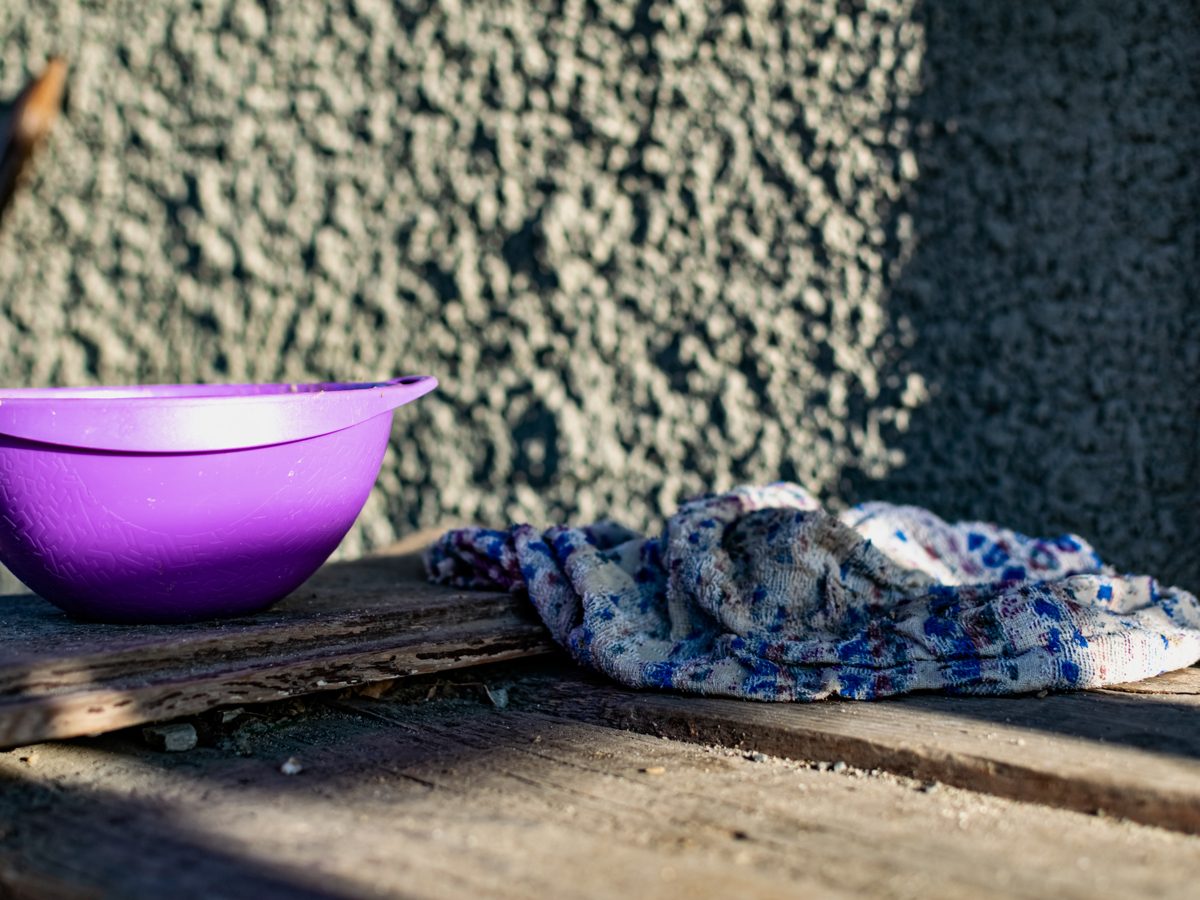
Oily rags
Paige NeJame, owner of CertaPro Painters in Boston and the South Shore of Massachusetts, cautions against leaving oily rags from painting and staining projects in your yard. “When oily rags in a pile start to dry and heat up, oxygen gets trapped inside,” she says. “The mixture of oil, heat and oxygen can cause a spontaneous combustion.”
The National Fire Protection Association recommends disposing of flammable oily rags by first hanging them outdoors to dry. Once dry, store the rags in a water and detergent mixture before disposing of them in a hazardous waste collection drive.
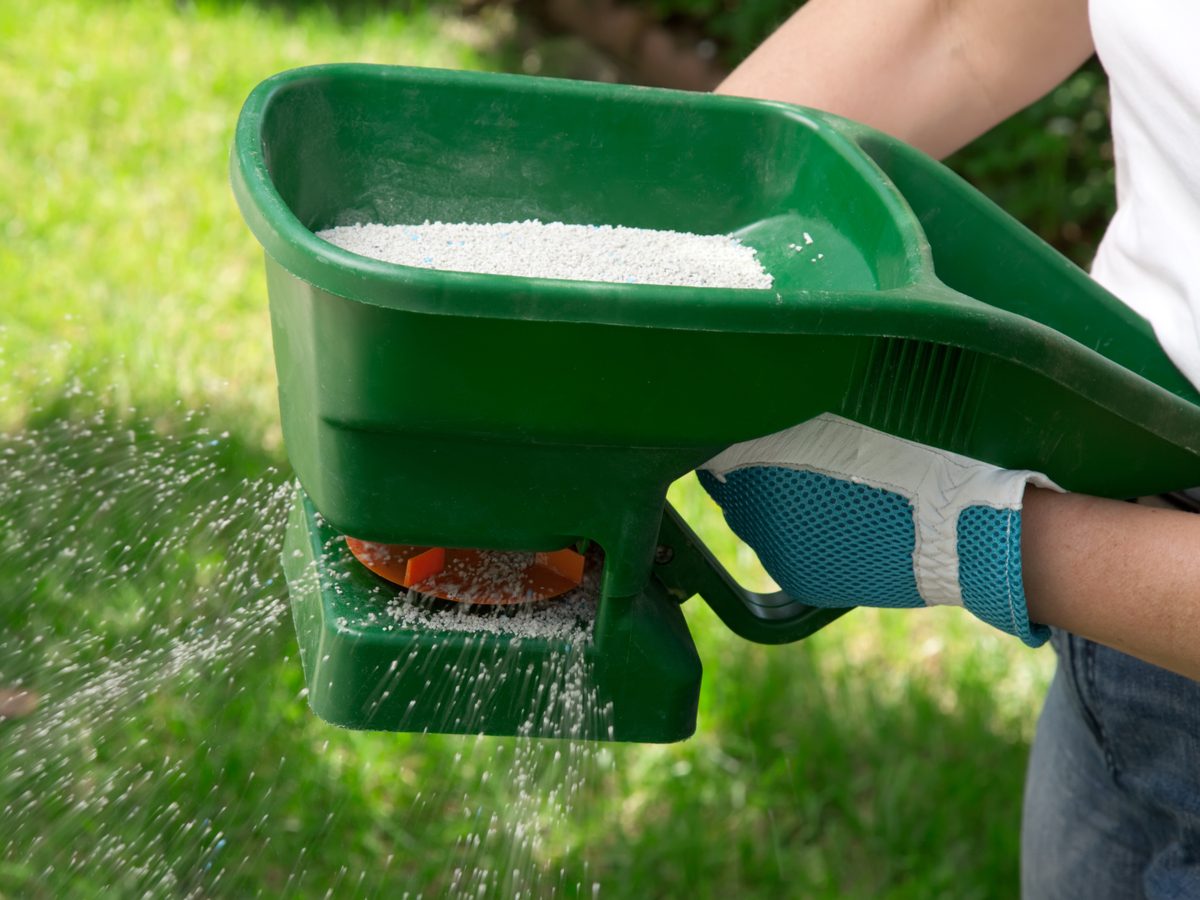
Household and yard products
Paint thinner, weed killer, fertilizer or any other household or yard product never should be left outdoors. For starters, they quickly deteriorate when exposed to the elements. Worse, a child or animal could be poisoned by ingesting something toxic. Always store home maintenance products in a secure, dry area inaccessible to children and pets.
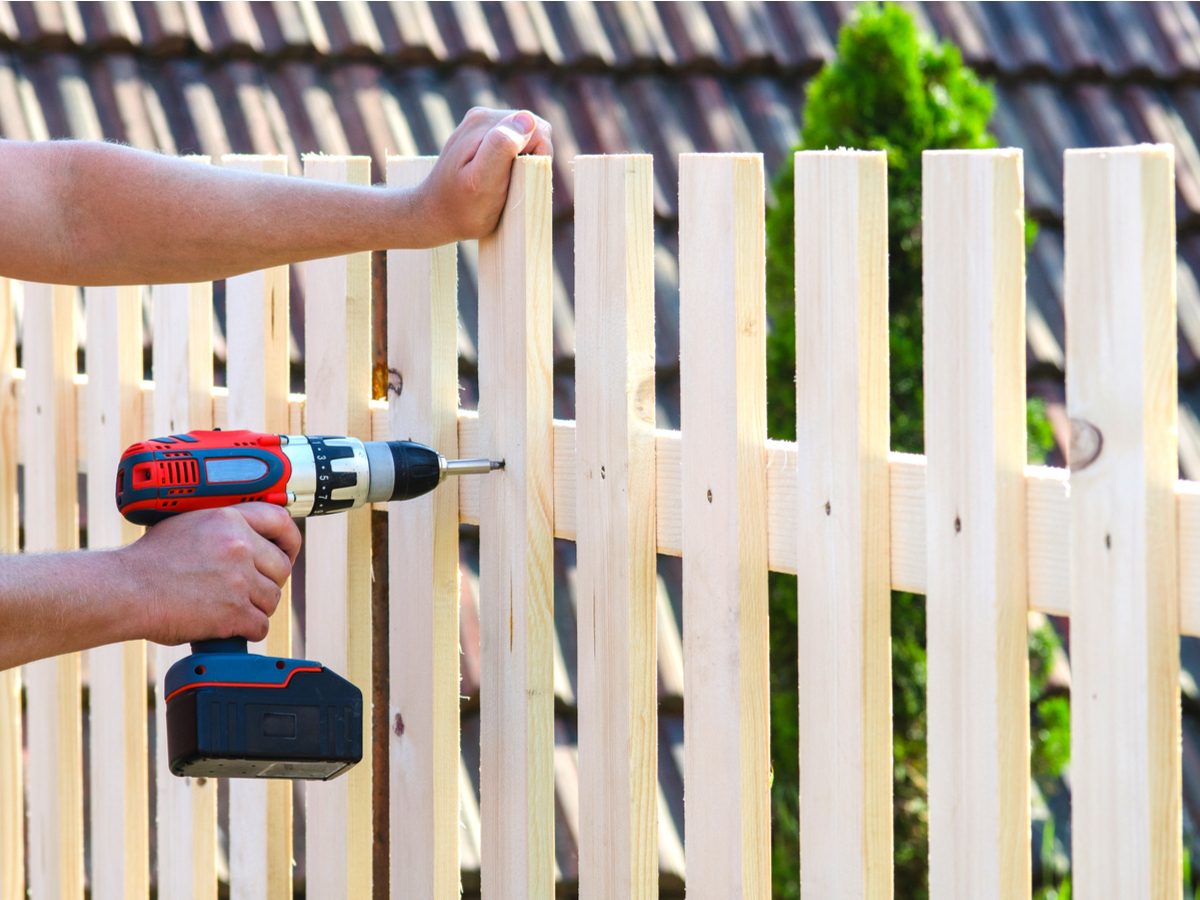
Renovation debris
Cleaning up is one of the most commonly forgotten steps in a home renovation project. That can be dangerous, because nails, shards of glass and splintered wood can endanger people and animals. Eamon Lynch, director of warranty service at Power Home Remodeling, recommends doing a sweep of the area as soon as work concludes for the day. Rely on your eyes and a magnetic sweeper that picks up any metal objects. He also recommends wearing close-toed shoes until the area is free of debris.
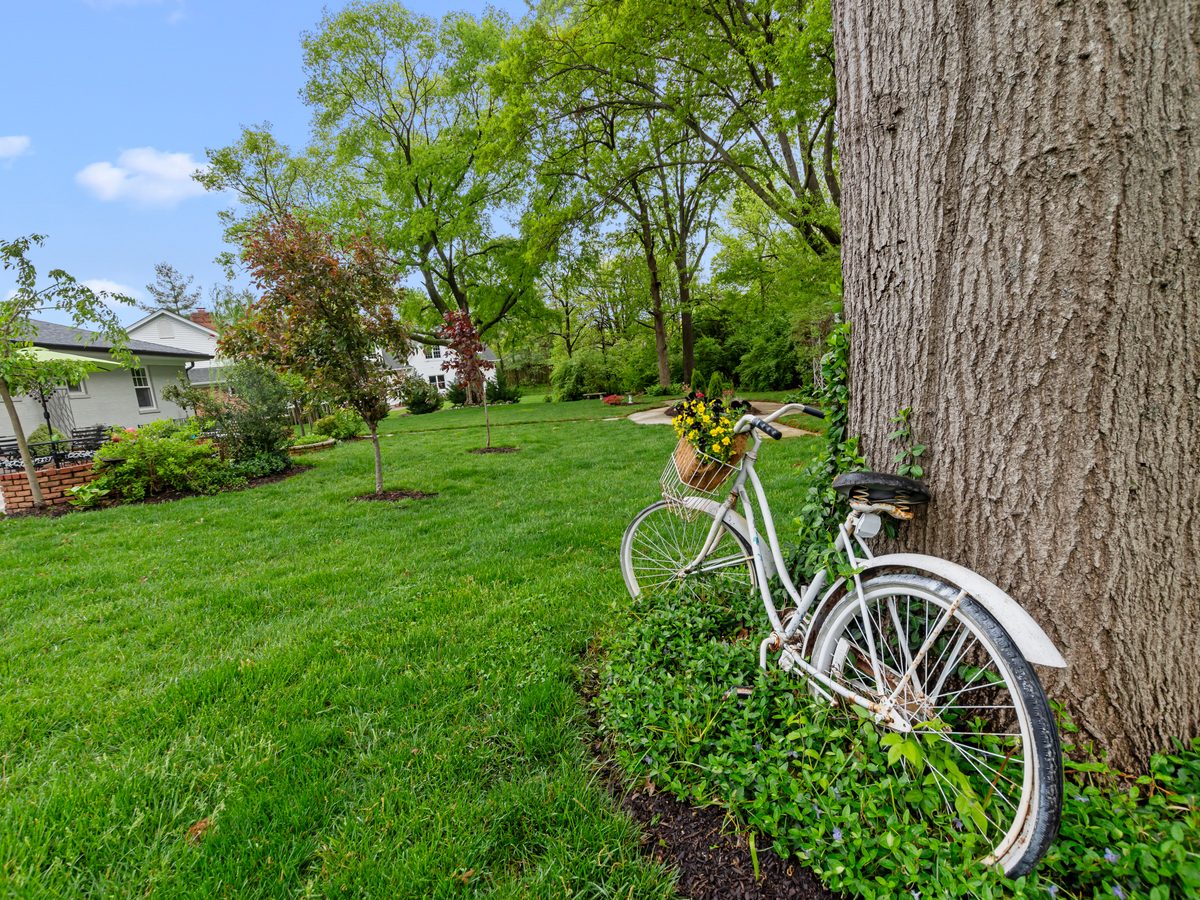
Bicycles
According to a study by 529 Garage, a bicycle is stolen every 30 seconds in North America. That amounts to more than two million stolen bikes a year! It only takes a minute for a thief to take off with an unlocked bike left in your yard. What’s more, a bike left out in the open is susceptible to damage from rain, hail, bird droppings and more. Protect your bike by keeping it locked in a sheltered area or safely inside the house or garage.
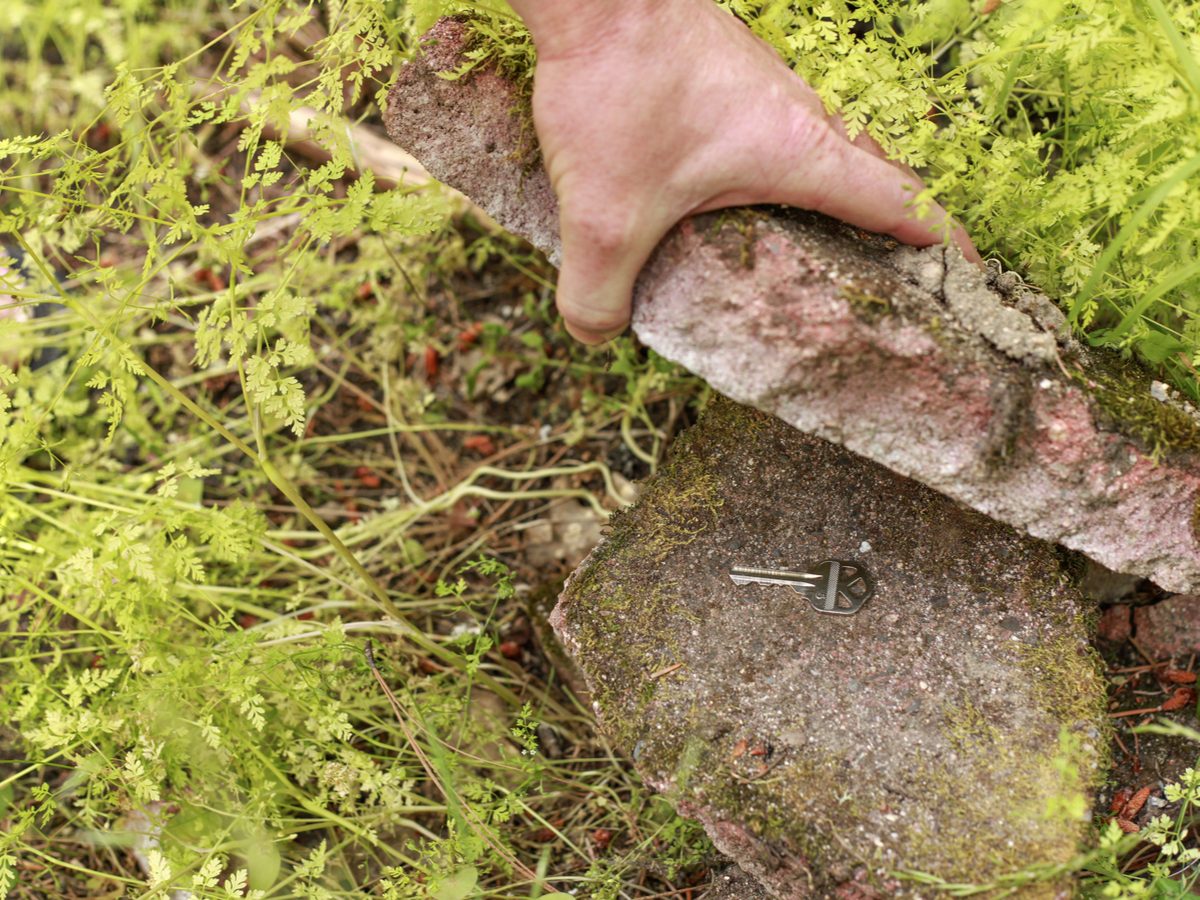
Spare key
You may think your spare key storage spot is clever, but there’s a good chance that a skilled burglar has already thought of it. A better way to avoid a potential lock-out: Invest in a keyless door lock, or leave an extra key with someone you trust. If you absolutely must store a key on the premises, secure it in a combination lockbox somewhere inconspicuous—not on the front porch.
Learn the sneaky ways burglars can break into your house.
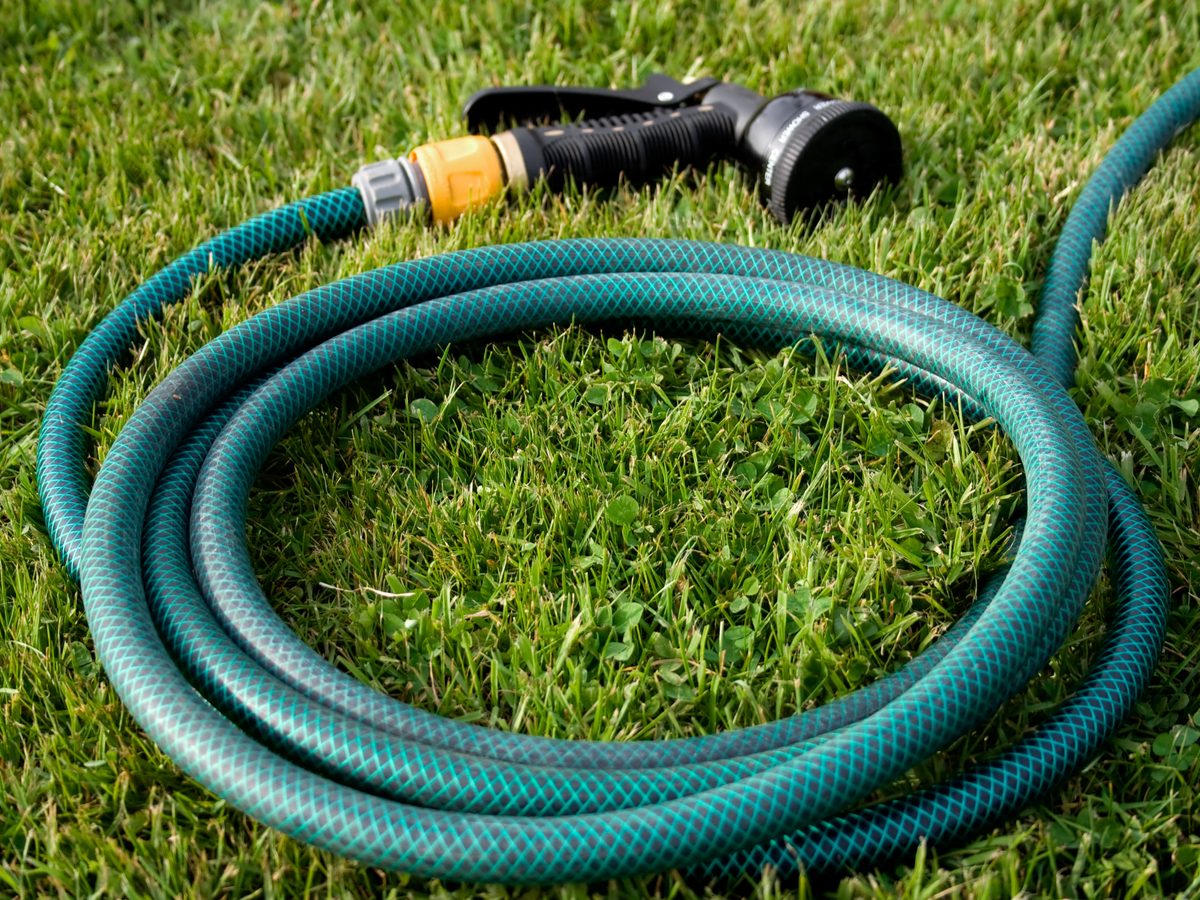
Garden hoses
A garden hose left out in intense heat can crack when exposed to too much sun. It also poses a tripping hazard for anyone walking close by. Old Man Winter does a number on hoses as well if you forget to drain them—ice can form inside and cause them to rupture. Always blow out your hoses before it gets cold and store them indoors. When it’s warm, store your hose somewhere safe, like a portable round garbage can or a garden hose holder.
These genius gardening hacks will help you get the beautiful backyard you’ve always wanted.
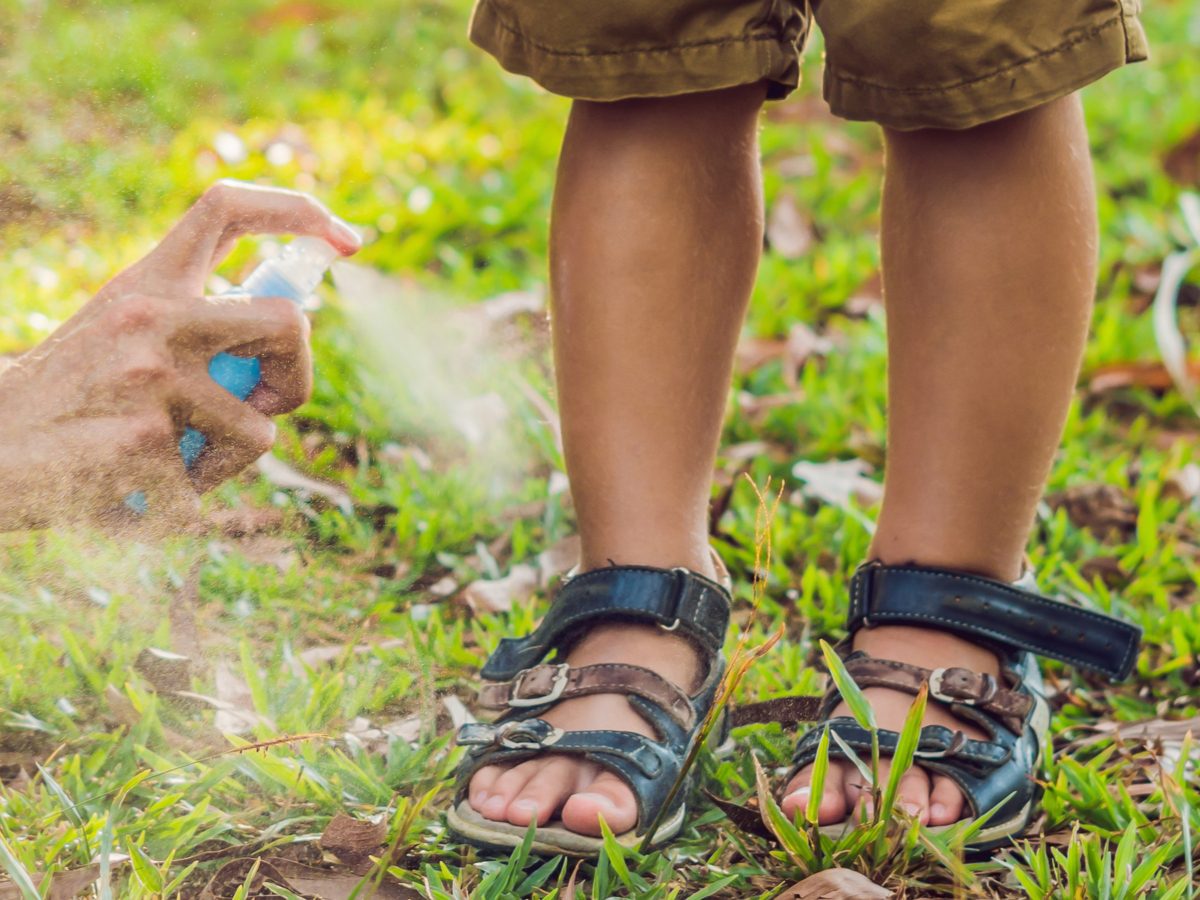
Bug spray and sunscreen
It’s tempting to leave bottles of bug spray or sunscreen outdoors, but it’s a bad idea for several reasons. Both lose their effectiveness when exposed to the sun and extreme temperatures. And both can poison kids and animals when they’re within easy reach. A better bet is store bug spray and sunscreen indoors in a cool, dry place, where they’re not accessible to little ones and pets.
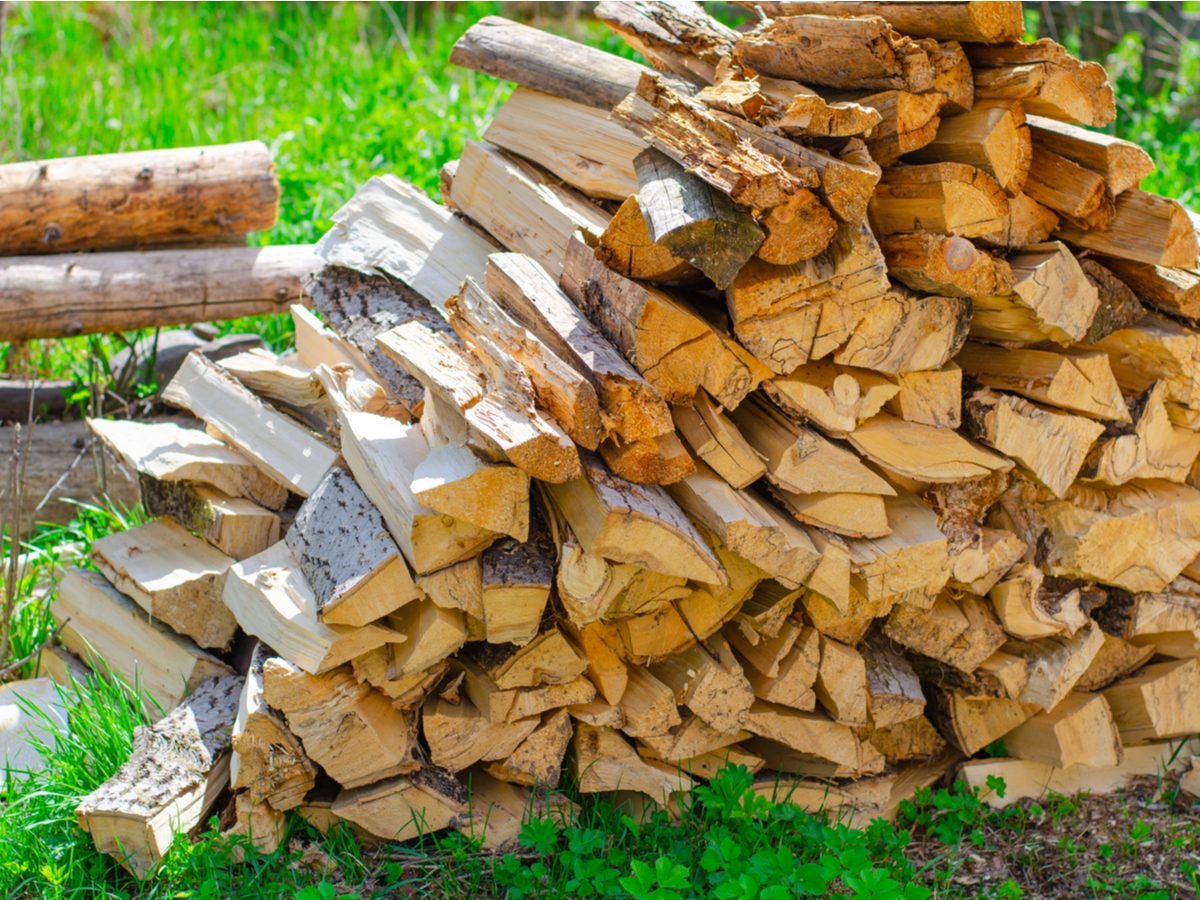
Firewood
Firewood stored on the ground acts as a sponge for moisture from the soil. This will leave it damp and unfit to start that cozy fire you had in mind. Firewood also tends to stick to the ground and take pieces of your lawn with it when you bring it inside. Instead, stack firewood on concrete, asphalt or a tarp outside at least five feet from other structures. Better yet: Place it in a sheltered area that gets some sun, such as a pallet shed.
Interested in going green? Consider these organic lawn care tips.
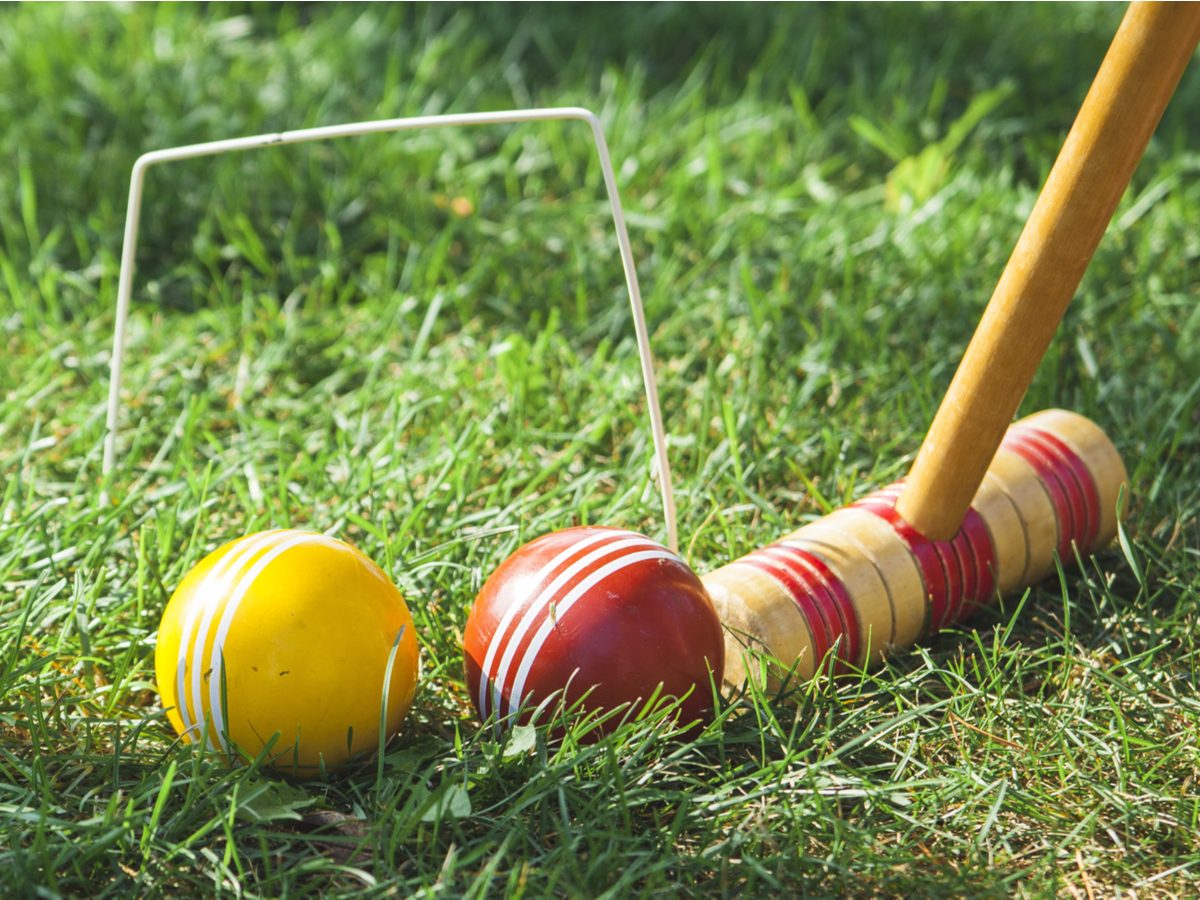
Outdoor toys and games
Everyone loves lawn games like cornhole, croquet and Frisbee toss. But leaving game implements outside is a bad idea on several fronts. Abandoned items are also a trip-and-fall risk and make your home a target for theft. Even if they aren’t stolen, game implements won’t last as long when they’re exposed to all manner of weather for extended periods of time. Avoid all these unwanted scenarios by stashing them indoors.
Here are the things you should never do to your lawn.